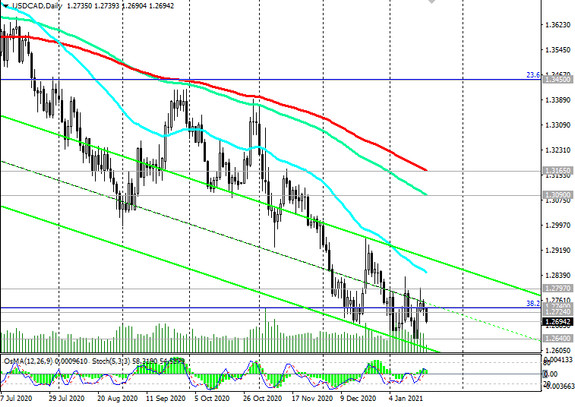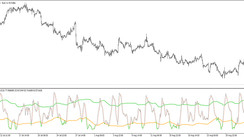Ahead of the inauguration of President-elect Joe Biden, which begins today at 5:00 pm (GMT), the dollar is weakening, under pressure from expectations that the Biden administration will launch a massive stimulus program, weakening the dollar and pushing the US economic recovery.
Speaking in Congress on Tuesday, the future US Treasury Secretary Janet Yellen also called on Congress to provide additional support to the economy.
The general optimism of stock market participants is also supported by hopes for a successful outcome of the coronavirus vaccination. Meanwhile, in the process of vaccination against Covid-19, difficulties may arise, because many are still refusing to vaccinate, given the many negative consequences it has in Europe and the United States. It is also unclear how long the immunity obtained through vaccination lasts, and how successfully developed vaccines can protect against new strains of the virus.
If vaccination outcomes turn out to be less successful than experts expect, and many countries still have to maintain existing lockdowns or drive new ones, then hopes of a quick economic recovery will have to be abandoned, and this will again increase demand for a safe dollar.
In the meantime, as we noted at the beginning of this article, the dollar remains under pressure and the DXY dollar index is declining today for the third day in a row. DXY futures were traded in early European session near 90.42, 52 points below the local 4-weeks high reached earlier this week near 90.94.
Accordingly, the USD / CAD pair is also declining, while the Canadian dollar is receiving additional support from the rising oil prices. At the beginning of today's European session, the USD / CAD pair is traded near the 1.2695 mark, in the bear market zone (see "Technical Analysis and Trading Recommendations").

Today the focus of traders trading in the Canadian dollar will be the Bank of Canada meeting, which will end with the publication of the decision on the interest rate at 15:00 (GMT).
The consequences of the coronavirus on the Canadian economy and the country's labor market (in March, unemployment rose to 7.8% from 5.6% in February, and the number of employees fell by 1.01 million people), as well as weak housing market put pressure on the Bank of Canada towards further easing of monetary policy. Nevertheless, it is expected that at today's meeting, the Bank of Canada will keep the interest rate at 0.25%, in an accompanying statement will explain its decision. The harsh tone of the accompanying statement by the Bank of Canada on rising inflation and the prospects for further tightening of monetary policy will cause the Canadian dollar to strengthen. If the Bank of Canada signals the need for a soft monetary policy, the Canadian currency will decline. At 16:15, a press conference of the Bank of Canada will begin, during which its head Tiff Macklem will explain the bank's position and assess the current economic situation in the country. In any case, during the period of publication of the decision of the Bank of Canada on rates and Macklem's speech, an increase in volatility in the CAD quotes and in the USD / CAD pair is expected. At the same time, it will be short-lived, because already at 17:00, the inauguration of US President-elect Joe Biden will begin.
His speech during the inauguration may set the tone for the further dynamics of the dollar and the direction of movement of the USD / CAD pair.





